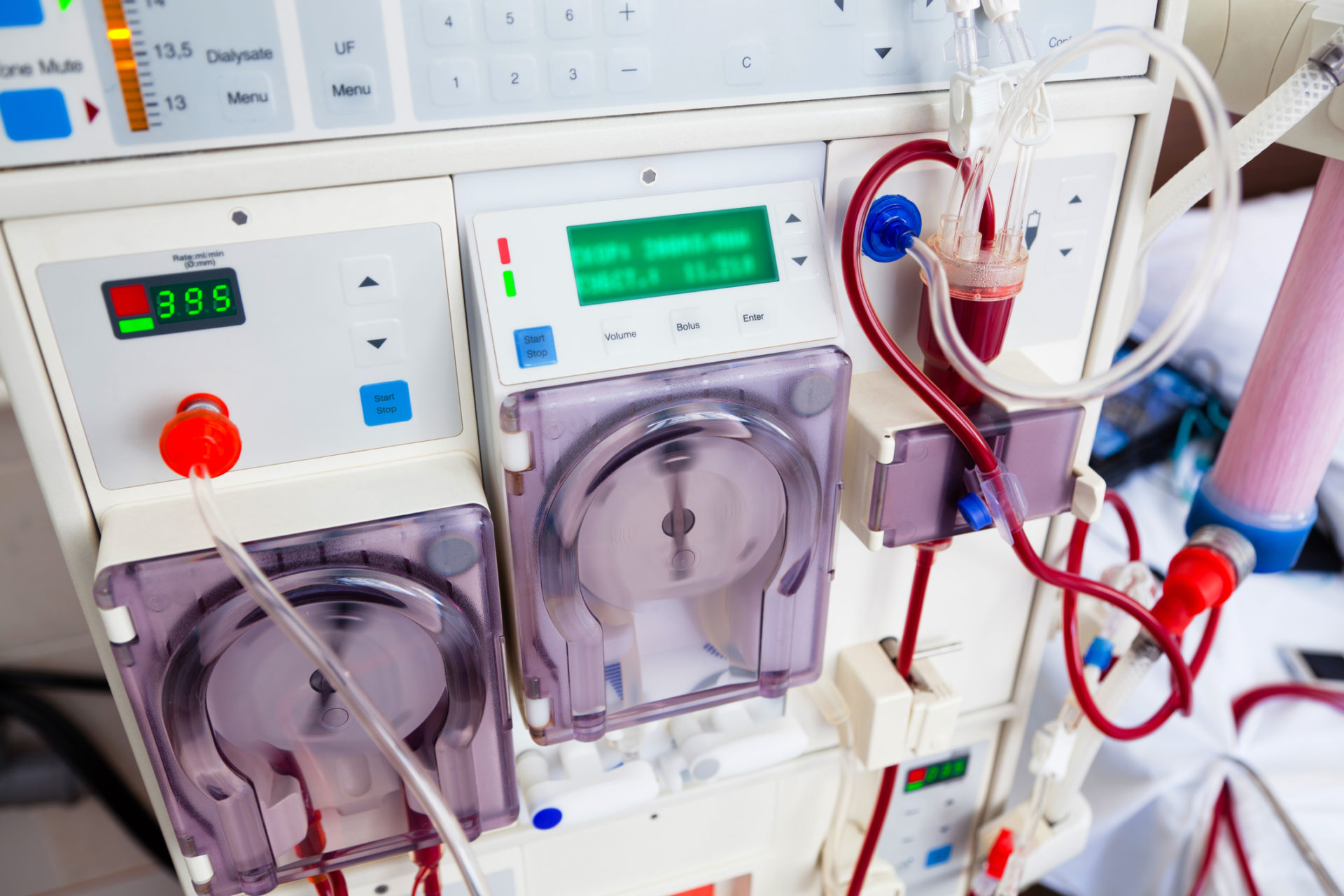Understanding Dialysis
Dialysis is a therapeutic intervention designed to assist the body in eliminating excess fluid and waste products from the bloodstream. This becomes crucial when the kidneys face challenges in performing this vital function. The origins of dialysis trace back to successful applications in the 1940s, evolving into a standard treatment for kidney failure during the 1970s. Since then, millions of individuals have benefitted from these life-sustaining procedures.
This form of treatment can be administered in various settings, including hospitals, specialized dialysis centers, or even within the comforts of one’s home. The decision on the type of dialysis and the optimal location is a collaborative effort between you and your healthcare provider, based on a careful consideration of your medical condition and personal preferences.
Uses of Dialysis
Acute Kidney Injury (AKI)
- Defined as a sudden episode of kidney failure or damage occurring within a few hours or days.
- Typically addressed in a hospital setting with the administration of intravenous fluids.
- In severe cases, short-term dialysis may be required until the kidneys recover their normal function.
Kidney Failure (End-Stage Kidney Disease – ESKD)
- Occurs when only 10-15% of kidney function remains, measured by an estimated glomerular filtration rate (eGFR) of less than 15 mL/min.
- At this advanced stage, the kidneys can no longer sustain life without additional support.
- Dialysis becomes a necessary ongoing treatment for those with ESKD.
- It is important to note that dialysis is not a cure for kidney disease; individuals with ESKD will require dialysis for the rest of their lives or until a kidney transplant becomes a viable option.
Procedure Details
Dialysis comes in two primary forms:
- Hemodialysis: Involves the extraction of blood from the body, passing it through an artificial kidney known as a dialyzer, and then returning the purified blood back into the bloodstream. This process, lasting between 3 to 5 hours, is typically conducted in a hospital or a dialysis center three times a week. Alternatively, individuals may opt for home hemodialysis, performing treatments four to seven times per week for shorter durations. Some choose to undergo home hemodialysis during nighttime sleep.
- Peritoneal Dialysis: Relies on tiny blood vessels within the abdominal lining (peritoneum) to filter blood using a dialysis solution. This solution, a cleansing liquid comprising water, salt, and other additives, facilitates the filtration process.
Peritoneal dialysis predominantly occurs at home and can be approached in two ways:
- Automated Peritoneal Dialysis (APD): This method employs a machine called a cycler to facilitate the process.
- Continuous Ambulatory Peritoneal Dialysis (CAPD): This form of peritoneal dialysis is carried out manually, allowing for greater flexibility and independence in the treatment process.
Preparing for Dialysis: Getting Ready in Simple Steps
Starting dialysis is a big step, and it’s important to be ready. Here are some simple things to keep in mind:
- Understanding Your Health: Talk to your doctors and nurses. They can help you understand why you need dialysis and what to expect. Ask questions about how it works and what changes you might experience.
- Deciding Together: Work closely with your healthcare team to choose the right type of dialysis for you. Share your thoughts and preferences. Decide if you want to go to a center for dialysis or do it at home.
- Getting Ready Emotionally: Starting dialysis can be emotional. It’s okay to feel worried or scared. Talk to your family, friends, or a counselor about how you’re feeling. They can offer support and understanding.
- Making Lifestyle Changes: Your healthcare team will guide you on what to eat and how to take care of yourself. They might suggest changes in your daily routine. Be prepared for these adjustments.
- Figuring Out Finances: Talk to someone about how dialysis will be paid for. Find out what your insurance covers. Financial counselors can help you with this. Make sure you have a plan to manage any costs.
- Building a Support System: Lean on your family and friends. Share information with them about your dialysis plan. Having a strong support system will make the journey easier.
Remember, you’re not alone. Take one step at a time, and you’ll be well-prepared for the journey.




